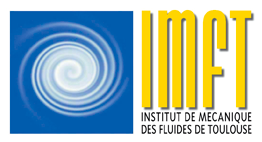Phd position in biomicrofluidics: Antibiotic tolerance and resistance in concentration gradients
Project overview. This interdisciplinary project investigates how fluid flow and antibiotic gradients influence bacterial behavior, particularly focusing on antibiotic tolerance and resistance mechanisms. We aim to bridge fundamental microbiology with advanced microfluidic techniques to understand how spatial and temporal
variations in antibiotic concentrations affect bacterial colonization, biofilm formation, and the emergence of resistance patterns
Research highlights.
• Develop and use cutting-edge microfluidics to create controlled chemical gradients
• Apply advanced imaging techniques to track bacterial behavior in real-time
• Combine experimental approaches with mathematical modeling
• Contribute to addressing the global challenge of antibiotic resistance
Required qualifications.
• Master’s degree (or equivalent) in Physics, Biophysics, Engineering, or related fields
• Background in either microfluidics or biophysics, with interest in microbiology
• Experience with experimental work and data analysis
• Demonstrated ability to work in an interdisciplinary environment
• Proficiency in English (writing and speaking)
• Programming skills are an advantage (e.g., MATLAB, Python)
Research environment. The doctoral research will be conducted at the Institut de Mécanique des Fluides de Toulouse (IMFT), with experimental work performed in a dedicated level 2 biosafety laboratory at the Centre Hospitalier Universitaire (CHU) de Toulouse. The candidate will benefit from state-of-the-art facilities and equipment for microfluidic experiments (including at the LAAS-CNRS platform) and bacterial culture.
Supervision and collaborations.
• Principal Supervisor: Dr. Yohan Davit (IMFT). Expertise: Fluid mechanics, transport in biological and
porous media, biophysics of bacteria
• Key Collaborators: This position is part of the ANR-funded project PRC MICRO-GRADIENTS, involving researchers from the Observatoire des Sciences de l’Environnement de Rennes, including Tanguy le Borgne, Christine Baysse, François Peaudecerf, and Hervé Tabuteau.
The project includes regular scientific exchanges through monthly online meetings and annual in-person gatherings with the entire team, offering excellent networking opportunities and multidisciplinary training.
Practical information. Duration: 3 years (expected start date: September/October 2025). Funding: Fully funded position (including salary and research expenses). Location: Toulouse, France.
Application process. Interested candidates should submit their application by email following these guidelines:
Email subject: postdoc_target_qs_toulouse
To: Yohan Davit
Email body: Brief self-introduction and motivation statement
Required attachments:CV + Academic transcripts (including rankings) + Recent thesis or research reports. Application deadline: Review of applications will begin immediately and continue until the position is filled, with a final deadline in August 2025. Early application is encouraged as the position may be filled before the final deadline.
